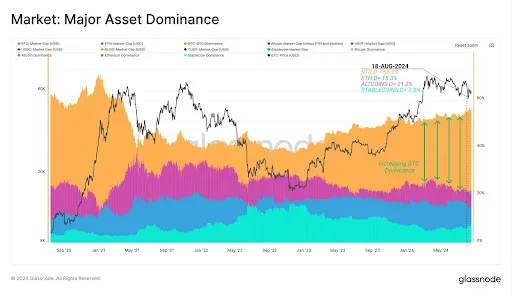Australia’s Melbourne County court sentenced a man for crypto cyber-identity theft crimes. The convict reportedly used fake documents to create online cryptocurrency accounts, stealing over a million dollars from Australian citizens.
Also read: Binance faces U.S. court again over crypto securities allegations
The court passed its judgment following an investigation into a website that sells fraud-enabling technology. The website is allegedly responsible for over a million dollars stolen from Australians. The Australian Federal Police (AFP) detective superintendent, Tim Stainton, pointed out that identity theft has severe implications for the victims and is a serious criminal offence that can attract a significant prison term.
A Melbourne man was sentenced to two years imprisonment at the Melbourne County Court on Monday 17 June, 2024, for cyber-enabled identity theft offences, including the use of fraudulent documents to establish online cryptocurrency accounts.https://t.co/pckizxOi3i
— AFP (@AusFedPolice) June 21, 2024
The court convicted the 31-year-old man of several offenses under Australia’s Anti-Money Laundering and Counter-Terrorrism Act 2016. The charges included dealing with proceeds of crime, producing and processing fake documents, providing false information, and failing to comply with court orders.
The Melbourne County Court sentenced him to two years in prison plus a ten-month non-parole period. The court pointed out that the case underscores the far-reaching consequences of cyber identity theft and the importance of international cooperation in fighting such crimes.
Australian Federal Police uncover crypto cybercrime network
The AFP launched Operation Stonefish in August 2022 after authorities in the UK started an investigation on a website that offered multiple spoofing services for as low as 20 British Pounds. The investigation followed a victim from New South Wales (NSW) presenting an identity theft claim to Report Cyber, a Commonwealth Government Website that reports cybercrime in Australia. The report involved the creation of a bank account without the victim’s consent.
Also read: Australia launches first-ever spot Bitcoin ETF
The AFP investigation report showed that the Melbourne man used fake driver’s licenses with details and names of actual victims alongside his own image to create fake accounts with two online crypto platforms.
AFP officers seize evidence from the offender’s address
In November 2022, AFP officers executed a search warrant at the suspect’s Boronia residence and seized several items. The items included lost Australian and People’s Republic of China passports, crypto exchange cards, Medicare cards, and debit cards registered under different names. The authorities also confiscated several NSW driver’s licenses bearing the offender’s image but with varied names and a blank Victorian driver’s license with no photo, name, or license number.
Tim Stainton emphasized the severe implications and consequences of identity theft. He stated:
“A stolen identity and the use of associated fraudulent documentation can have a devastating impact on people’s lives if sold online or used for criminal purposes.”
The officers also found an open messaging platform on the offender’s computer containing conversations on identity-based crimes and instruction manuals on creating false identity documents. However, he refused to provide the correct passcodes for his laptop, mobile phone, and tablet devices.
Cryptopolitan reporting by Collins J. Okoth





